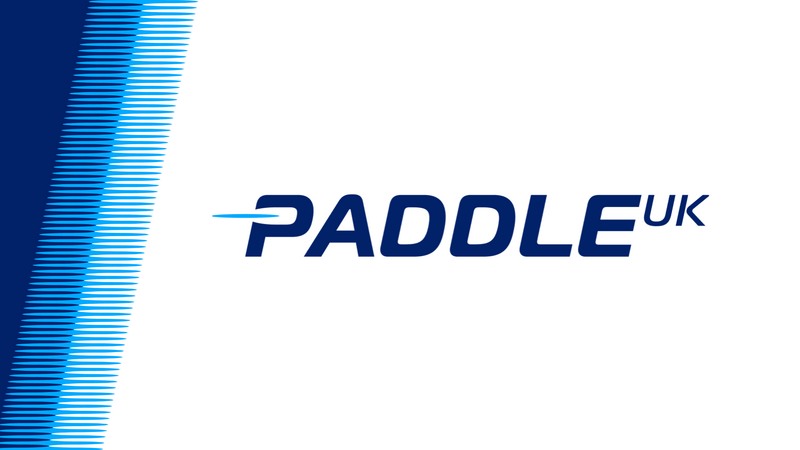
PUKer up: SUP and canoeing take the next step together in Britain
It was music to the ears of paddleboarders all over the United Kingdom: British Canoeing has officially rebranded as Paddle UK. The change is a clear bid to make SUP paddlers feel just as included as the longtime canoe and kayak members who still refer to their national governing body as the “British Canoe Union” (“BCU” got nixed in 2014). Despite the slightly awkward acronym (“PUK”), the move for inclusivity seems to be working.
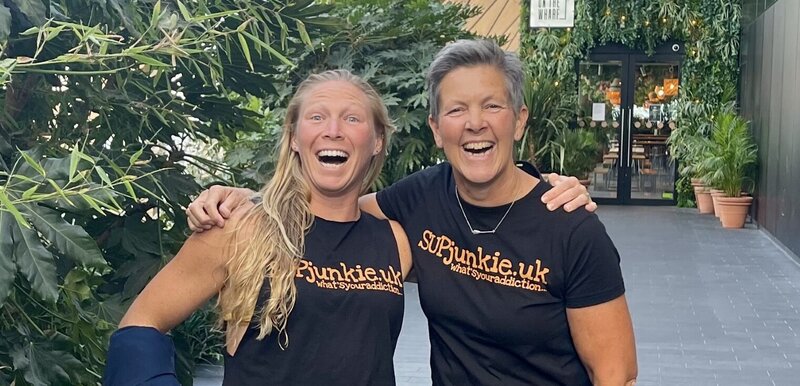
Sarah Thornely (right) pictured here with April Zilg // photo: SUPjunkie.uk via Facebook
PUK Yeah
Sarah Thornely of SUPjunkie UK and other leaders of Britain’s SUP community have been fighting for years to get the national governing body to take SUP seriously. Sarah said: “There were a lot of people who thought it wasn’t going to change. It’s a bit of a grey-suited old boys club.” Now, Sarah is one of the most enthusiastic voices on the rebrand: “Paddle UK acknowledged that [they’re a bit old-fashioned] and they’re trying to change that… we see the rebrand and Paddle UK’s commitment to change as a great positive and are looking forward to seeing how this affects our SUP athletes particularly.”
It seems that 50,000 SUP members was the magic number. Paddle UK (fka British Canoeing) cited the rapid growth of SUP membership as one of the primary reasons for the rebrand: “Our membership has grown from c.40,000 to c.90,000 members, with over 50,000 registering an interest in stand up paddleboarding. This change in demographic was acknowledged last year by Sport England, who officially co-recognised us as a national governing body for the activity of stand up paddleboarding alongside Surfing England” (Paddle UK).
Sarah described a recent meeting with Paddle UK as “very frank”; the organisation has recognised the need to listen to the voices of the SUP community itself to understand how to better serve SUP as a discipline. Paddle UK even appointed Samantha Rutt, a longtime leader in the SUP community in the UK, to a dedicated part-time role last year focused on building SUP connections and supporting SUP athletes. Sam holds the world record for fastest SUP across the North Channel from Northern Ireland to Scotland. Although Paddle UK’s top priority is still the Olympic paddling disciplines (mandated by their funding structure), it seems that, like the ICF, Paddle UK is becoming increasingly receptive to the needs of SUP.

Espe Barreras leading the pack ahead of a gold at the well-received ICF World Championships in Pattaya 2023 //photo: ICF
ICF → IPF?
Over the past couple of years, the International Canoe Federation (ICF) has been unabashedly putting the moves on SUP despite losing the 2020 court case for SUP’s Olympic aspirations to the International Surfing Association (ISA). The ICF World Championships in Pattaya last year got rave reviews from SUP racers. Athletes were thrilled to have championship locations and dates announced multiple years in advance, and races that actually ran at the time they’re scheduled for. The ISA isn’t going anywhere, especially after winning prospective Olympic rights to SUP, but the Paddle UK rebrand makes it look like SUP and old school canoeing are at least moving in together (maybe not getting married quite yet).
Could the Paddle UK rebrand filter up to the international level? The ICF will be watching the PUK rebrand closely, and may consider following in Britain’s footsteps. Paddle UK has said in their rebrand: “we will represent Every Paddler, Every Craft, For Every Type of Water.” The ICF still identifies themselves as “the global authority for canoe and kayak paddling sports” but with their overtures towards crafts not considered canoes or kayaks, specifically SUP and Dragon Boat, it’s probably just a matter of time until they embrace a broader “paddlesports” mission officially. A rebrand at the international level could signify that the ICF is embracing SUP as both the present and future of competitive paddlesports. And could even mean that the fight for an Olympic spot for SUP under the ICF umbrella isn’t over yet…
around the world, slow steps towards integrating sup racing
Paddle UK is one of the largest national governing bodies for paddlesports globally. With a population of just 67 million in the UK, Paddle UK has 90,000 members. In comparison, the American Canoe Association (ACA) in the US has just 15,000 members (pop 330 million). Sarah Thornely thinks the new integrated paddlesports model that Paddle UK is pioneering could influence national governing bodies around the world: “I think other countries will look at Paddle UK and see how successful it is and try to replicate that success.”
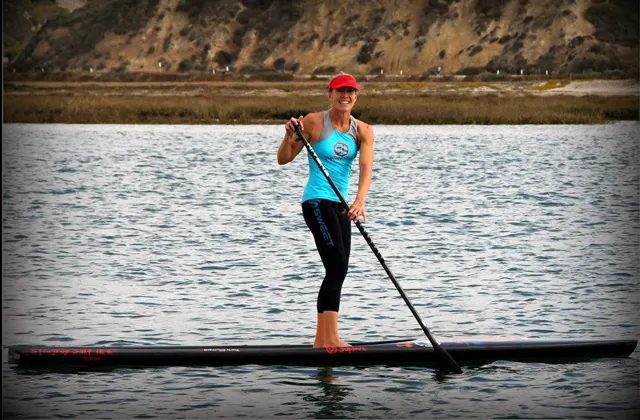
Kristin Thomas (KT), longtime stand up paddleboarder and leader in the SUP community in the US and globally //photo: John Alvarez via mensjournal.com
In the United States, Kristin Thomas of KT Outside and USA SUP is also pushing for better integration of stand up paddleboarding at the national level. Of the Paddle UK rebrand, she said “I was thrilled to see that change… it’s much more inclusive.” The challenges of managing SUP at a national governing body level in the US are almost the inverse of those in the UK – where British Canoeing had a long history of catering to Olympic competition, the American Canoe Association (ACA) has only been the recognised governing body for competition, SUP or otherwise, since 2017. Before 2017, the Olympic and Paralympic paddling disciplines in the US were managed by USA Canoe and Kayak (USACK). The 2017 news was a flip-flop back towards integrating competitive paddling under the ACA again as it had been before the split in the 1990’s. The ACA in its recent history has been almost exclusively focused on recreational paddlers. The ACA’s relatively new (as much as 7 years can be considered ‘new’) responsibility to competitive paddlers has come with “growing pains.”
These growing pains are part of why Kristin helped start USA SUP two years ago: “USA SUP is an independent organisation, and we’re not the first country to do it. There’s a big gap when it’s top down, and we want to build from the grassroots up. South Africa did this very early, and their national governing bodies (NGBs) for canoe and surfing were both thrilled – when they were told by the ICF to identify a national team, they knew where to go. So I think that’s what a lot of NGBs ran into was ‘help, what do we do with this new young sport!’ It doesn’t feel malicious, but there’s a lack of knowledge.”
The ACA is slowly moving toward both better integration of competitive paddling and SUP racing specifically: Kristin Thomas is currently in a role at the ACA is similar to Samantha Rutt’s at Paddle UK, and KT is now officially running for a spot on the brand new “SUP Competition Committee”. Kristin hopes this is a step towards more support for SUP athletes in the US, but she has a request for the ICF as other countries try to organise competitive SUP racing: “I would love to see the ICF help the NGBs figure this out.”
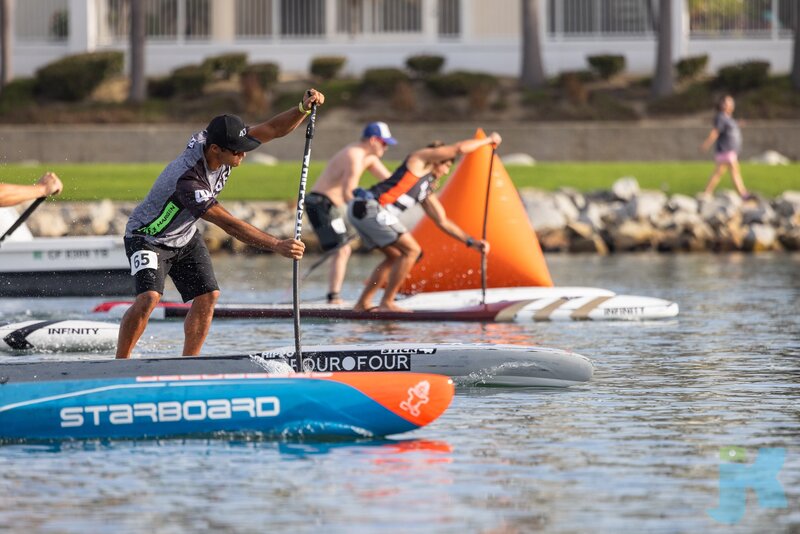
Danny Ching competing at the US national championships in 2023 hosted by USA SUP // photo: James Kao Foto via USA SUP Facebook
Not all sunshine and rainbows
While the Paddle UK rebrand has generally been well-received by paddlers across disciplines in the UK, the meaningful integration of SUP will take a lot more time and effort. Britain has a robust community of old-school canoe clubs that generally haven’t done much with SUP. The canoe/kayak and SUP communities often have little overlap, and canoe clubs tend to be slow to change. At one club on the Thames, even getting a rack space for a surfski kayak is considered taboo: priority goes to flatwater kayaks and canoes first. Sam Rutt predicts: “It’s going to be a slow snowball effect.” With Paddle UK, she plans to start by focusing on the clubs that are already taking steps toward including SUP. Sam acknowledges that “Some clubs might want to keep the heart and soul of canoe/kayak, but others will see it as paddlesports. And then everyone realises how slow SUPs are and gets in a K1!”
On the flipside, the club structure could offer huge advantages to existing SUP groups as well: “We want to see groups set up as affiliated clubs of Paddle UK. [Clubs can] get insurance, get access to advertise events through Paddle UK, have a club support network – I think the SUP community aren’t aware of all those benefits yet.” Sam and Sarah both flagged the risk of losing a generation of young people if the sport can’t bring in more youth while the current junior class ages out. Marathon and sprint canoe clubs in the UK often have partnerships with nearby schools, scouts, or other youth organisations – those young people might be keen to try a “skill swap” days between different paddlesports and end up discovering SUP.
To the old school paddlers who may be sceptical of SUP, Sarah says “You have to be open. If you’re a canoe club and you don’t know, get someone in who does know… Don’t be threatened. SUP is big and it’s great fun… If you heard someone say ‘I’m just going to buy a canoe and figure it out, you’d say no, come to the club!’ Find a SUP expert who’s enthusiastic, passionate and fun. It has been the fastest growing watersport. Just go ‘wow’ another new watersport, how exciting!”
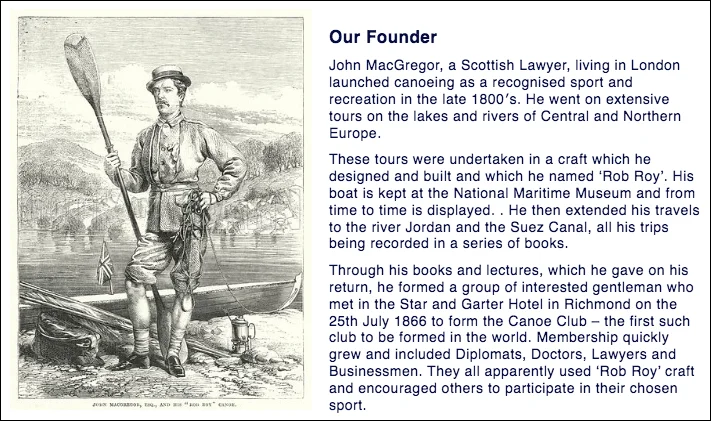
Royal Canoe Club claims to be the oldest modern canoe club in the world. John MacGregor, the club’s founder, is pictured here embodying “old school” canoeing //photo: Royal Canoe Club
The “paddlesports” connection
As SUP integrates more with canoeing federations around the world, the sport should continue to see improvements in standardisation and support that can provide fertile ground for growth of the sport. Equally, SUP is so huge and distinct as a paddling discipline that the national and international governing bodies won’t be able to absorb it without being shaped by SUP. The more that different disciplines and organisations can work together in the interest of the athletes and the sport, the better – successful integration will depend on everyone being committed to working together in good faith. And maybe we can avoid having to solve the next sport-wide controversy in court…
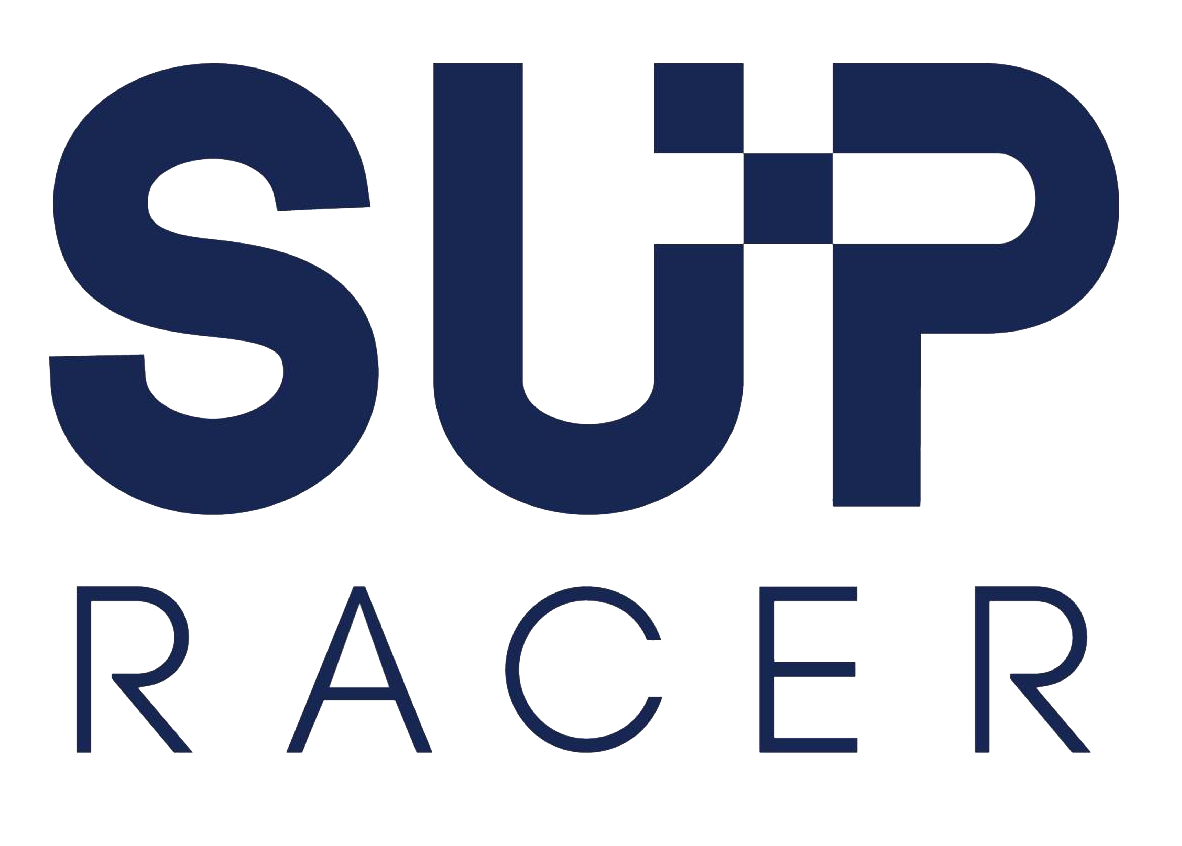


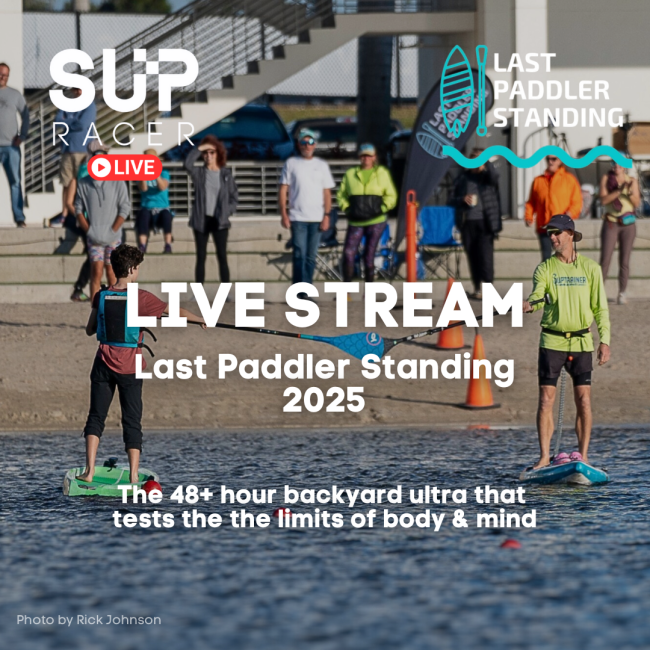
You must be logged in to post a comment.